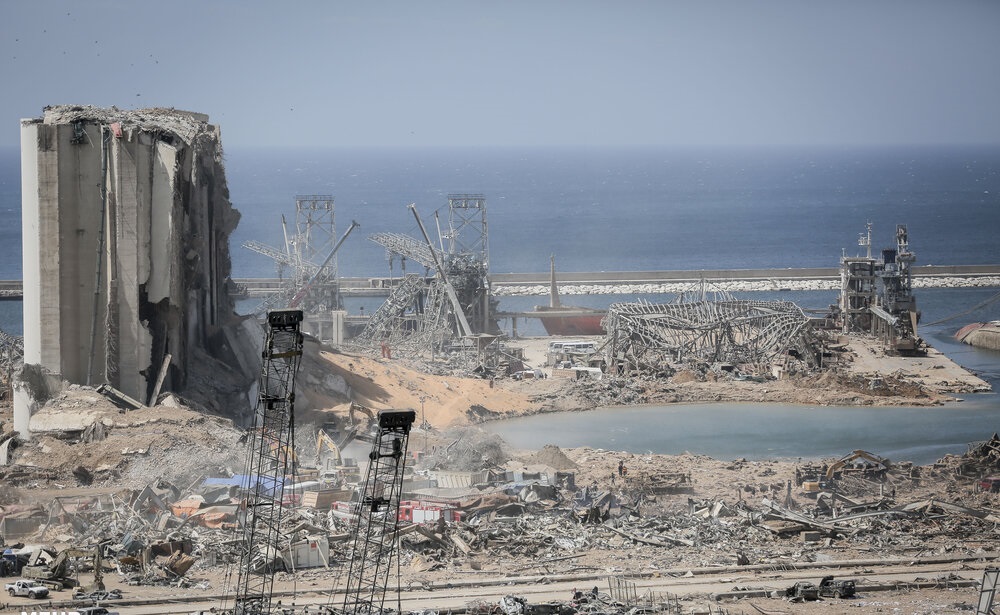Please find below an excerpt of a letter from Bishop David, regarding an appeal to help those impacted by the explosion in Beirut, along with a link to donate below. We will be forwarding your donations to the Diocesan Outreach via Open Doors.
Few of us can forget the terrible images of the explosion in Beirut. For me, the images evoked very personal memories of visiting Lebanon a few short years ago, and the refugee camps and the stories of Syrian Refugees caught up in the war. I was humbled and hugely impressed by the energy, resolve, and creativity of the network of small churches in the region who were reaching out in Christ's name to these distressed and traumatised people.
As the facts emerge about this man-made catastrophe the scale of suffering is incalculable. 200 dead, 375,000 homeless, and over 5000 still hospitalised - and this is only the tip of the iceberg.
Clearly it will take generations to rebuild Lebanon's already fragile infrastructure. There is however an immediate crisis to address. Open Doors who I travelled to Beirut with a few years ago are working with a coalition of small non-government organisations and churches who are working amongst the poorest and marginalised to provide medicines, medical and psychiatric services, and essential humanitarian aid and food. Smaller organisations are more agile at times like this. I know those personally directing operations.
Please consider what response you should make to this emergency in Lebanon. The church in Lebanon may be small but their commitment to Christ is inspirational. They are our brothers and sisters in Christ, please ensure that we share in their suffering and in their healing at this time. Here are some prayer points sent to me from Lebanon this morning.- Vulnerable and food insecure Lebanese affected by the declining economic crisis and the sharp devaluation of our local currency. Needless to say, prices have skyrocketed and the middle class is now almost completely dissolved particularly as many have lost their source of income, others are receiving only a portion of their salaries (that have already lost about 80% of their purchasing power because of the devaluation of the local currency).
- Families and communities have been scattered due to the wholesale destruction of entire neighbourhoods.
- Sanitary services have been degraded. Rubbish collection is erratic. The danger of disease spreading is significant.
- Large scale trauma amongst those who have lost livelihoods, and those physically injured by the explosion.
- Political instability following the resignation of the government creates opportunities for those in bordering nations to exert unhelpful influence.’



